Patient experiences using primary care wait lists in Canada: A qualitative study [Health care services, delivery, and financing]
Annals of Family Medicine
NOVEMBER 20, 2024
Patients without a regular primary care provider (a family physician or nurse practitioner) are considered "unattached,". In 2019, 14.5% million people aged 12 and older) were unattached to a regular primary care provider. of Canadians (approximately 4.6

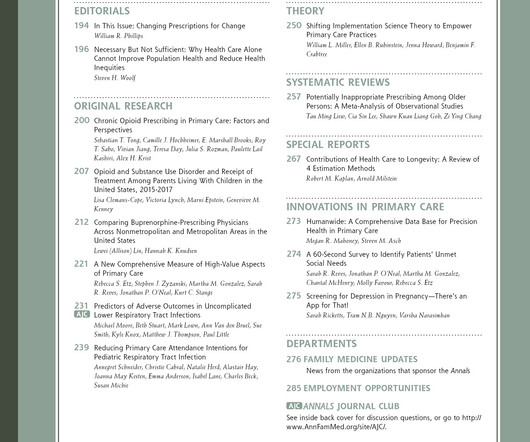
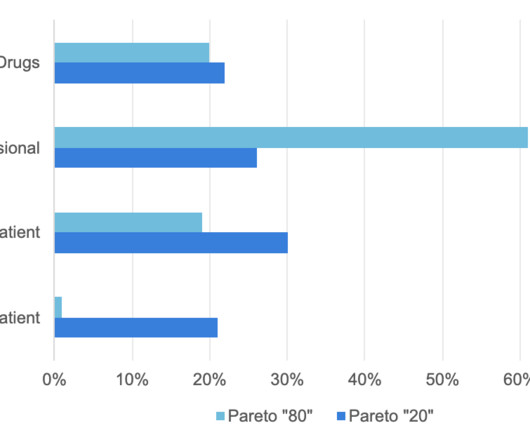
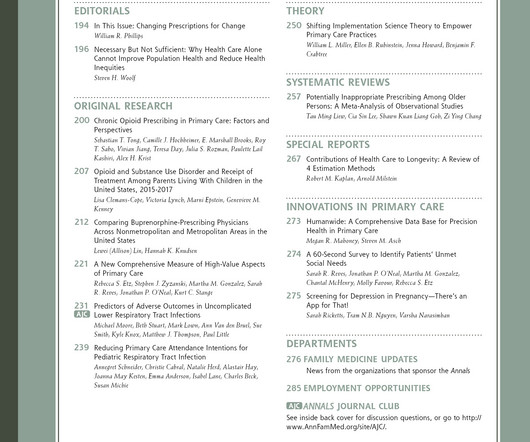
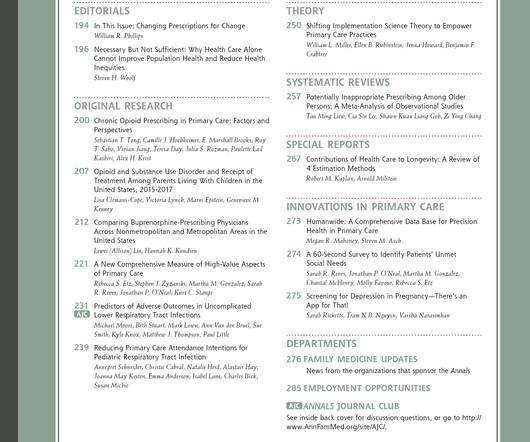
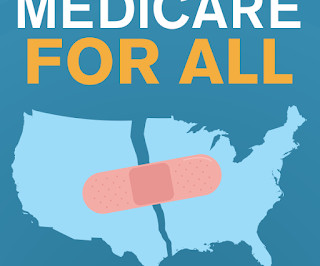






Let's personalize your content